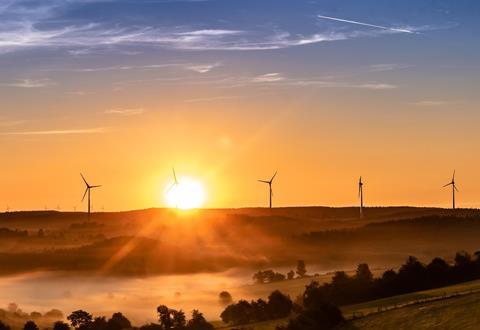Institutional investors including pension funds face significant physical risks to their investment portfolios as the planet heats up due to climate change, according to new research.
Ortec Finance has warned that strategies to reach net zero by 2050 may no longer be realistic, given the higher-than-expected temperatures in 2024.
“Following the warmest year on record, the Paris Climate agreement target of limiting global temperature rises to 1.5°C by the turn of the century looks increasingly unlikely,” said Maurits van Joolingen, managing director for climate scenarios and sustainability at Ortec Finance.
“Even our most ambitious scenario does not anticipate the world reaching net zero until mid-2050 and shows temperatures rising to by 1.6°C by 2100.”
The Intergovernmental Panel on Climate Change (IPCC) has warned that the average temperature rise could hit 3°C above pre-industrial levels this century given the current trajectory.
In a recent speech, IPCC chair Jim Skea said this would result in “severe impacts, significant irreversibility and a limited ability to adapt”.
Physical climate risk ‘most serious threat’
Ortec’s analysis set out four scenarios for how global warming and climate change will transpire, and how it will affect various economic indicators.
The physical risk to investment assets associated with rising temperatures and carbon emissions was “the most serious threat to asset performance and the financial system”, Ortec said.
Van Joolingen added: “It is clear that under current policies, where there is hiatus in political willpower to reach net zero across large swathes of the developed world, temperatures will continue to break records.
“As a result, physical risk poses the greatest threat to institutional investment portfolios and the stability of the global financial system. The recent surge in global temperatures and corresponding risk of triggering a range of climate tipping points, accentuates the potential downside even further.”
He said it was part of institutional investors’ fiduciary duty to members and stakeholders to “fully understand climate change’s realistic impact across a broad range of potential outcomes and periods of market disruption”.
Without action, the consultancy group has forecast significant inflation effects as agricultural output and labour productivity is hit.
Ortec’s “High Warming” scenario – based on the current trajectory of temperature rises – also forecasts a significant hit to global economic output.
Van Joolingen said: “Under this scenario, average global real GDP growth in the next 25 years is expected to drop to 1.1% – making it much harder for central banks to control inflation with monetary policy.
“This worsens in the following period up to 2070, where increasingly severe physical damage leads to almost zero real growth on average.”
Bond and equity returns to be hit
Investment grade bond returns are expected to fall and defaults increase, with Ortec’s forecasts showing results “comparable to the global financial crisis and dotcom crisis”.
In equity markets, UK and US equity performance is expected to “decline sharply” through the 2030s as physical risks manifest through extreme weather, potentially triggering an “insurance crisis”. As insurers become less willing to protect against climate risks, further equity market falls could follow.
In the “High Warming” scenario, US markets are forecast to be most heavily affected by rising defaults, falling prices, and investment losses.
However, investments in low-carbon and renewable energy technologies could prove more resilient, according to Ortec Finance’s models.
Since its previous forecasts, the company said investment in and the prevalence of low-carbon and renewable technologies had “exceeded expectations”.
“The gap in projected equity returns because of different sector exposures to transition risk has never been more pronounced and creates opportunities for investors to realign portfolios to mitigate any fallout from the transition,” Ortec said.


























